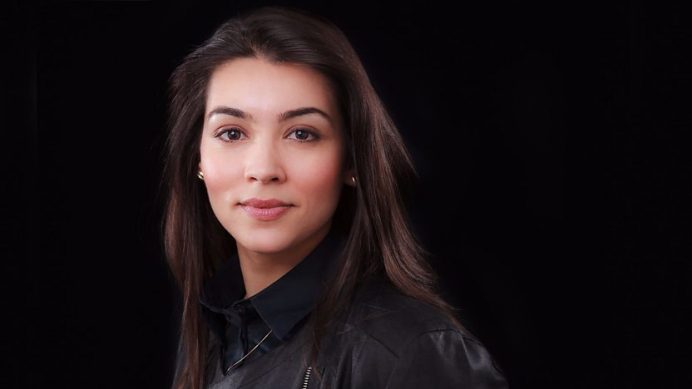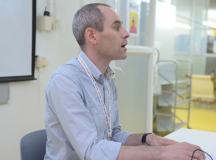On 2 July 2019 the Royal United Services Institute (RUSI) organised a one-day conference to explore UK strategy in the Middle East after Brexit in collaboration with the Britain Israel Communications and Research Centre (BICOM). Bringing together a select audience of academics, policy experts, think tankers, journalists and government officials, the conference divided the topic into three themes: current policy, the UK’s role in the region and future challenges in the Middle East.
Speakers included Baroness Catherine Ashton, former High Representative of the Union for Foreign Affairs and Security Policy; Rt. Hon. Alistair Burt MP, former Middle East Minister; Sir Mark Lyall Grant, former UK National Security Advisor; Professor Michael Clarke, former RUSI Director-General; Dr Emman al-Badawy, Institute for Global Change; Dr Toby Greene, Queen Mary University; Dr David Roberts, King’s College London; Jane Kinninmont, Head of Programming, The Elders; and Dona Haj, DCMS UK-Israel Tech Hub.
If we look at the future in the Middle East through a generational lens, the important question to be asked is what change we can expect from the region’s demographic shifts and what implications should these changes have for UK strategy in the region?
A window of opportunity is approaching, if it has not already opened. In April, a UNICEF report concluded the most favourable period for the Middle East will be between 2018 and 2040 – meaning that the rate of dependency of the population will be at its lowest, and that more and more of the population will transition to what UNICEF say will be the ‘productive years,’ opening up a ‘demographic dividend’ with, potentially, increased wealth and expansion of opportunities.
Today, 25 and under is the dominant age cohort in the region. In 2015, it was estimated that one in five of the population was aged between 15 and 24. The Middle East is the largest region with the age cohort known as the Generation Z, those born between 1996 and 2009. The UN predicts that Generation Z has the potential to be the ‘agents of change’ in the Middle East. But they say this is dependent on certain conditions being met, one being that we have to act now as the window of opportunity will begin to close in the second half of the century.
UK strategists would be wise to think about how we position ourselves in relation to this demographic shift, the resources that young people in the region may offer, and how to cultivate the relationship between the UK and the rising numbers of young people through good policies.
So, what do these young people actually want?
Before the Arab Spring there was a lot of Arab research asking what the younger generation were thinking? [I say ‘Arab’ because one of the flaws of these surveys was that they only looked at the Arab population and minority voices, of which there are many in the Middle East, were overlooked.] The World Values survey, which began in the 1980s, was driven by the assumption that the world was converging due to globalisation and that this greater interconnectedness would mean the values held by new generations across the world would become more similar. In fact, the World Values survey found, after collecting data every four years, that over the last 30 years the opposite has been happening: far from converging on values, but we’re actually polarising. Values, remember, are very different from attitudes, which can change over time and be very pragmatic, whereas values are more firmly rooted.
Millenials and Generation Z
Youth are not one homogenous bloc. There are differences between millennials, Generation Z etc., with each sub-group having different mind-sets and priorities. For example, millennials are ‘tech-dependent’ but not ‘tech-savvy’, which makes them very different from Generation Z, who are very tech-dependent as well as tech-savvy. The latter totally understand the online world and the offline world and they don’t necessary separate them, whereas the millennial typically has an ‘online life’ and an ‘offline life’ and tries to limit online consumption, which they believe is a limit to offline engagement. Consequently, the technological revolution is going to be experienced as far more organic by Generation Z compared to the millennial generation, who are still grappling with what it means to expose their views and attitudes and how they can and should communicate safely and smartly in the online world.
Changing information flows
In the Middle East, Facebook and Twitter are very popular – in Saudi Arabia there are more than 5 million active twitter users and over 40 million YouTube views a day. More: a majority of young Arabs get their news from social media. Youth are likely to use Google over libraries and journals. Technology is rapidly revolutionising the way information is spread and consumed across the region. This is very worrying for the governments, especially those that are used to regulating the spread of information and controlling the national narrative.
Changing aspirations
When Arab youth are asked what are the key obstacles they face today, the majority say geopolitical conflict, the cost of living, unemployment and slow economic growth. Nearly 50 per cent of men between the ages of 25 and 29 are unmarried, which is linked to cost of living and unemployment issues, but also to deep cultural challenges such as parents pushing their own lifestyle choices onto their children.
What we are seeing within the millennial generation in this regard is interesting: the older half have been taught to follow the system (get an education, earn a living, get married and have children); the other, younger half are consciously deciding not to live that life, partly because they can’t, but also because they are against it. Those youth from the latter half of the millennial generation who were out in Tahrir Square in late 2010 were thinking more about social reform and self-actualisation values than about marriage and education. They were saying ‘the social contract I’ve inherited from my parent’s generation is not working so I want something different.’
Changing relationship to religion
Arab youth are struggling with religious values and institutions. Some see both as trapped in the past. Surveys say that religious institutions are alienating the youth today. This does not mean that there is a rise of secularism in the region. The youth of the Arab world respect religion and want it to form part of their culture and their everyday life, but they want it in their private lives.
Some see the religious institutions as being out of touch with the demands and challenges of their everyday lives, or not representative of the kind of Islam they want to practice. And the effect of this is a weakening of the ability of religious leaders to be key community levers for government and for civil society.
Changing Shia-Sunni reations
Relations between Shia and Sunni youth are apparently getting worse. Although I have some issues with the data, it suggests that the post-2003 generation are a lot more aware of their sectarian identity and the number of Shia-Sunni marriages has fallen dramatically. My own fieldwork in 2013 (a unique period, for sure, shortly after the start of the Arab uprisings) revealed a strong rise of nationalist identity. This is not necessarily an anti-Western identity, but it should be borne in mind when developing UK strategy.
We are not witnessing an entire new generation that is going to be reform-minded and cosmopolitan. National narratives are still prevalent in everyday parlance in the region and young people still talk about their Palestinian, Jordanian, Egyptian identities. I don’t think we have fully thought through what a strong national identity, coupled with the other trends I’ve mentioned, means for the future of the Middle East, especially in the absence of alternative visions for the future.
Britain should not assume that it can influence young peoples’s values just because it has soft power. Younger people buying Nike caps and iPhones are not necessarily doing away with their traditional family values. The UK has to be comfortable with the fact that the values of the younger generation in the Middle East are sometimes contradictory, i.e. they might be a little anti-Western, but they might also like the UK because it offers different lifestyles and they want to travel there.
Changing view of Palestine
There is a generational shift in terms of interest in big conflicts like the Israeli-Palestinian conflict. The current religious leadership in al-Azhar thinks that the younger generation in Egypt are losing their understanding of the importance of the Palestinian issue. This apathy is also a concern for other leaders in the region. In their annual book fair, al-Azhar addressed this by naming the fair ‘2018: The Year of Jerusalem’. The leading Sheikh of al-Ahzar said: ‘Our youth barely know anything about the historical status of Jerusalem and the importance to the whole cause to our present, unlike the Zionist settlers who bring up their children to hate Arabs and fill them with historically false ideologies and concepts’. The UK, a democratic and rules-based country, should engage in this conversation or other people will take leadership in a vacuum.
‘No Wasta on the internet’
Young tech entrepreneurs are the role models of today. They show it is possible to break through the system and succeed. As one young Arab entrepreneur said, ‘There is no Wasta on the internet,’ meaning there is no nepotism online. The phrase encapsulates how the internet is seen by young people as an opportunity to break free from the system. Whereas previous generations looked toward the government as the dominant provider of jobs and wealth, today the youth are beginning to think they can provide for themselves, often more efficiently. For example, in Egypt there is a new start-up dealing with traffic jams in the major cities. However, business is still heavily regulated and to get a start-up off the ground is extremely difficult. So we have to also be realistic when we talk about the investment opportunities around innovation and entrepreneurship in Arab countries.
To sum up, 16-year-olds in Bahrain, Jordan and Egypt have more in common with 16-year-olds in Qatar, Iraq and Saudi Arabia than they do with 65-year-olds in their own countries. The UK can develop policies which recognise this, instead of policies for specific countries. There is real value in analysing the future of the region in this way, beyond the national boundaries we often set for ourselves. However, the conversations about generational change can be quite misleading. There is an assumption from older generations that the younger generations will be more reform-minded, modern, liberal and will fix everything! This is unfair because you cannot expect it to happen unless you cultivate and invest in it. And can we really expected one generation to shed the skin of decades of instability, corruption, wars, economic struggle and long-term breach of a social contract?
People just do not believe in the idea of a rules-based system in the region. People are yet to see the advantages of what an opened-up Egypt, Syria or Iraq would be for them. So whilst the demands and goals of the youth in these countries today are not necessarily revolutionary, it doesn’t mean our policies shouldn’t be revolutionary. We must start thinking about how to help the individual and not keep seeing the Middle East through a state-centric lens.
The panel discussions can be watched below.





































